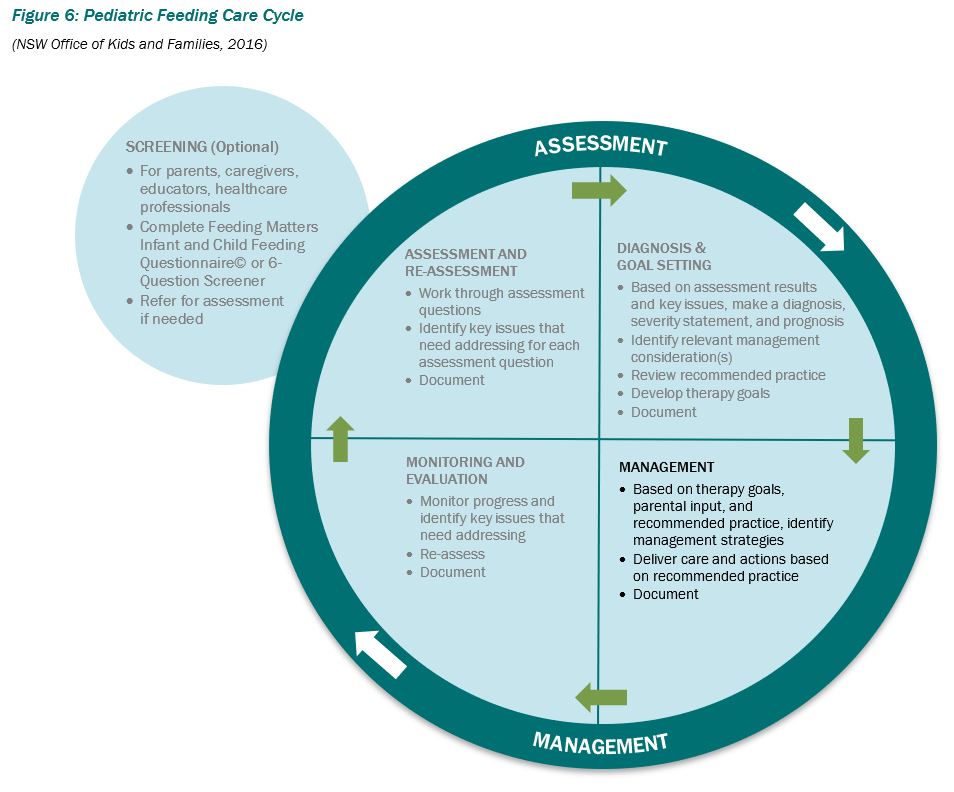- Medical Stability
- Facilitating Safe Swallowing
-
Nutrition Management to Improve Oral Nutritional Intake/Nutrition and Hydration
- Estimating Energy and Protein Requirements
- Supporting Adequate Growth
- Supporting Oral Nutrition for Exclusively Breastfed Infants
- Supporting Oral Nutrition for Formula Fed Infants
- Supporting Oral Nutrition for Infants Between 6 - 12 Months
- Supporting Oral Nutrition from 12 Months Onward
- Ensuring Adequate Fluid Intake
- Supporting a Healthy Eating Pattern
- When to Consider Enteral Nutrition
-
Seating and Positioning
- Positioning of Infants and Young Children for Feeding
- Positioning for Breast and Bottle Feeding in Infants and Young Children
- Positioning When Introducing Solids
- Using Highchairs and Boosters
- Positioning for Infants, Children and Youth with Significant Postural Needs
- Using Specialized Seating Equipment
-
Feeding Skill Development
- Facilitating First Tastes
- Facilitating Infant Feeding as a Neurodevelopmental Skill
- Facilitating Child Feeding as a Neurodevelopmental Skill and a Relational and Responsive Process
- Facilitating Oral Sensorimotor Function
- Considerations for Pacifier/Soother Use
- Considerations for Breastfeeding
- Considerations for Bottle Feeding
- Considerations for Solids
- Additional Resources
- Feeding Environments and Routines
- Sensory Processing/Regulation
- Oral Hygiene and Dental Health
- Surgical Management
Management: Oral Feeding
Consideration of the cyclical nature of pediatric feeding care continues in the planning and implementation of interventions to address issues identified through eating, feeding and swallowing assessment, diagnosis, and goal setting. Management of pediatric feeding disorder (PFD) includes interventions or actions required to achieve the therapy goals. These goals and their respective outcomes are documented. This is depicted in the Pediatric Feeding Care Cycle (Figure 6).

This section of the guide includes management considerations related to:
|
|
